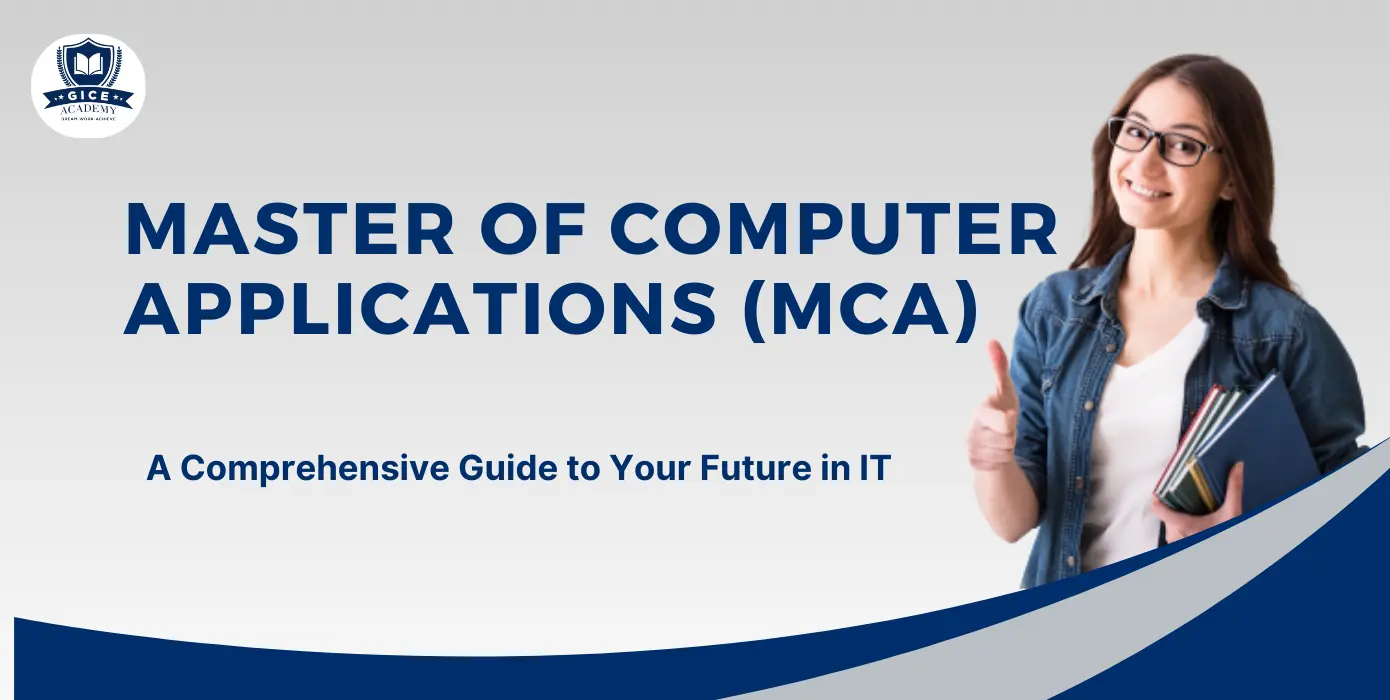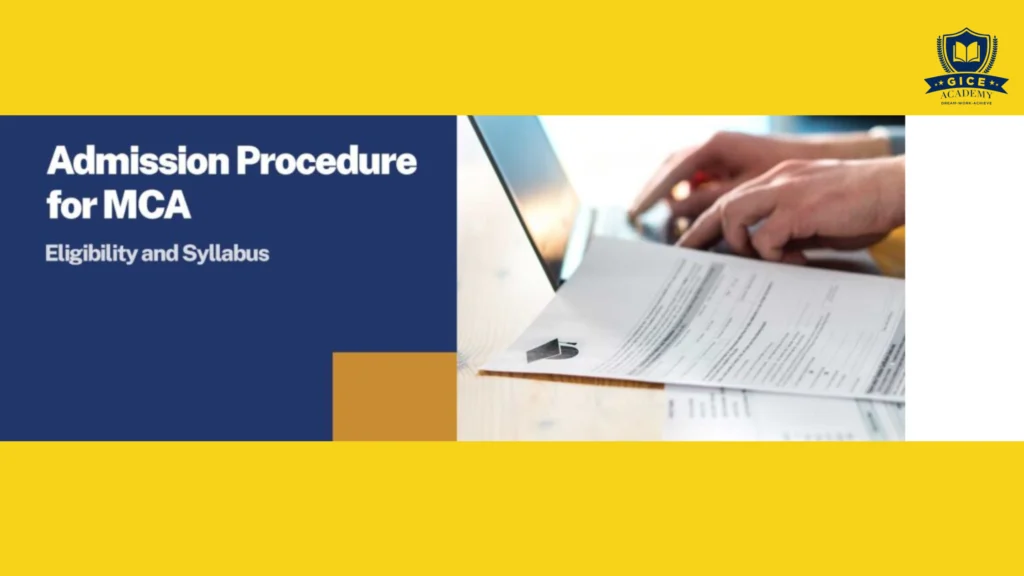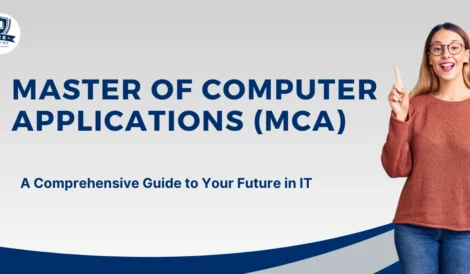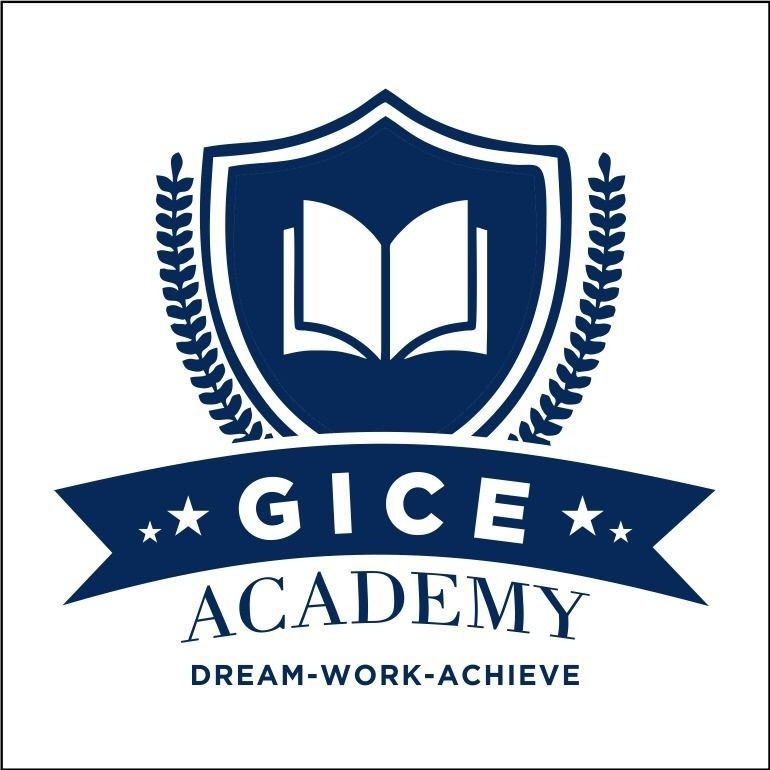Table of Contents
The MCA course is a three-year postgraduate program that focuses on advanced theoretical and practical knowledge in computer applications. It aims to develop professionals who can meet the demands of the IT industry by providing them with in-depth understanding of software development, system design, and information technology. The curriculum is designed to cover a broad range of topics, from programming languages and database management to networking and web technologies. This ensures that graduates are well-prepared to tackle the challenges of the modern tech landscape.
Candidates can enhance their preparation by joining an MCA Coaching Classroom Programme at GICE Academy. This program provides study notes and a comprehensive guide for the MCA 2024 exam.
Eligibility Criteria for MCA
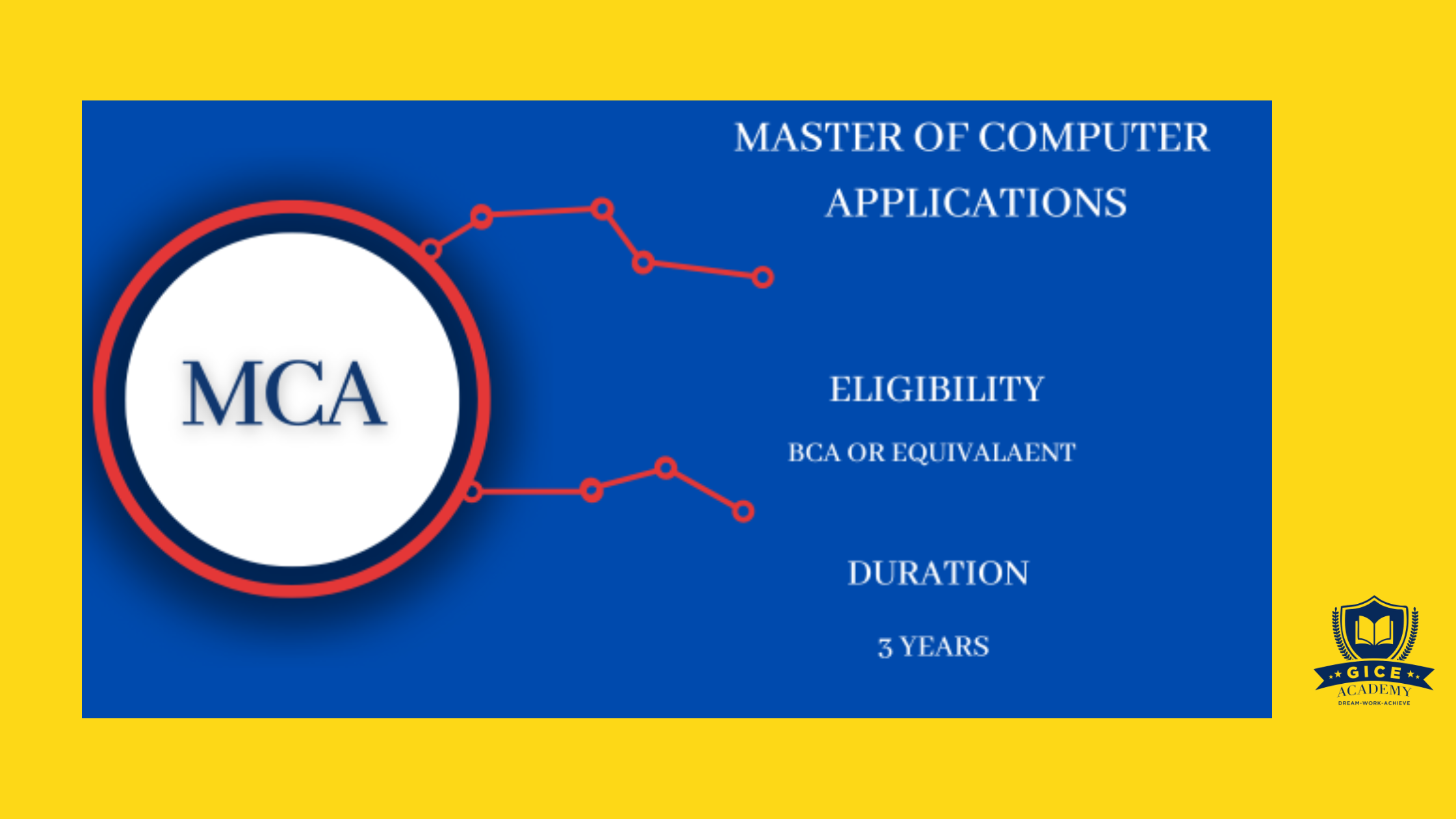
Academic Requirements
To be eligible for an MCA program, candidates must meet the following academic criteria:
- A bachelor’s degree in computer applications (BCA) or any related field such as computer science, information technology, or electronics.
- Alternatively, candidates with a bachelor’s degree in any discipline and a sound knowledge of mathematics and computer science at the 10+2 level or during graduation are also eligible.
Entrance Exams
Admission to MCA programs in India is primarily based on entrance exams. Some of the popular MCA entrance exams include:
- NIMCET (NIT MCA Common Entrance Test): Conducted by NITs for admission to their MCA programs.
- MAH MCA CET: Conducted by the Directorate of Technical Education, Maharashtra.
- BIT MCA Entrance Exam: Conducted by Birla Institute of Technology.
- JNU MCA Entrance Exam: Conducted by Jawaharlal Nehru University.
Each entrance exam has its own syllabus and pattern, and candidates must prepare accordingly to secure a good rank.
MCA Course Structure and Syllabus
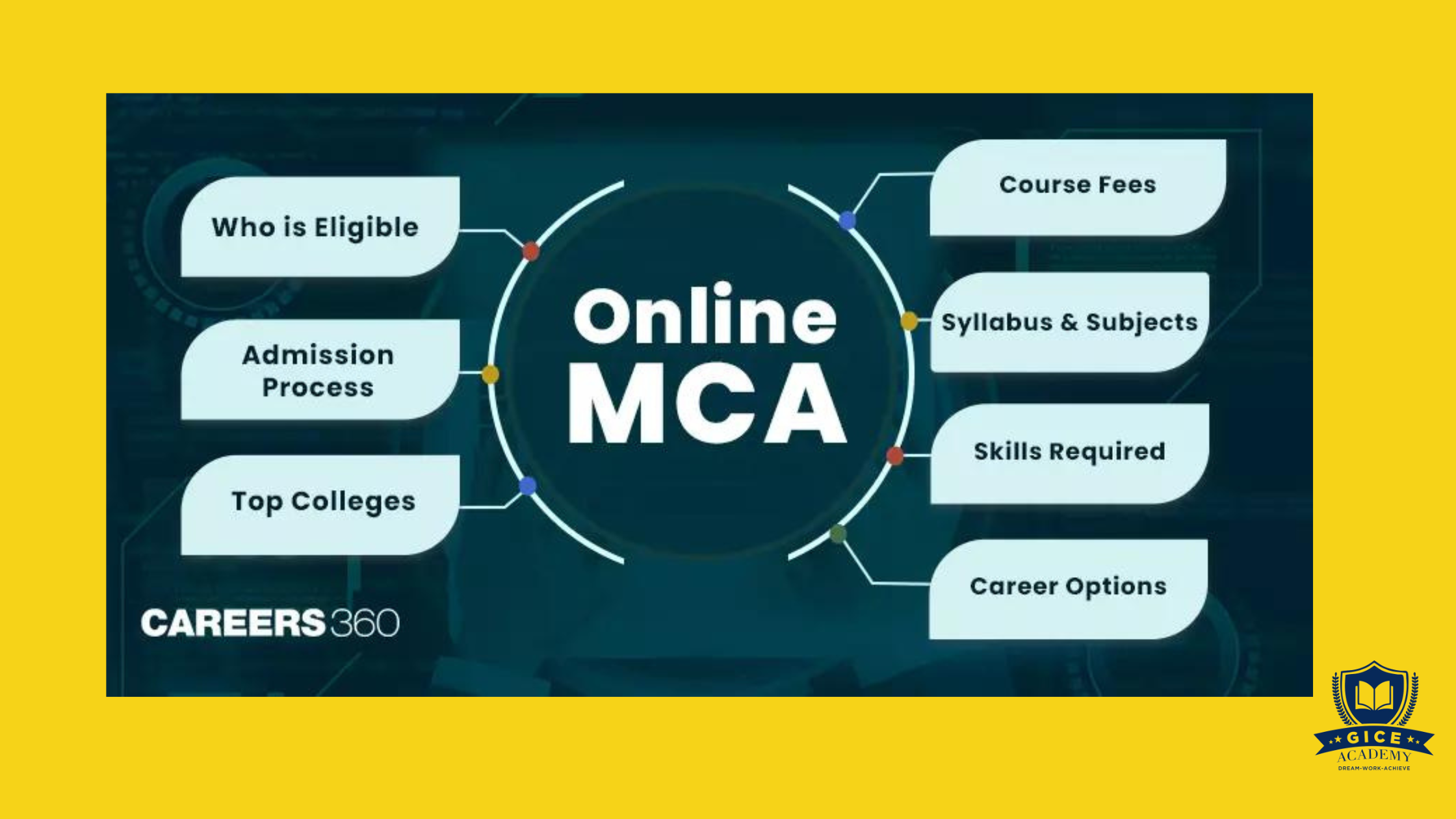
Core Subjects
The MCA curriculum typically includes a mix of core and elective subjects. Core subjects cover fundamental areas essential for all MCA students, such as:
- Programming Languages: C, C++, Java, Python
- Database Management Systems: SQL, NoSQL, Oracle, MongoDB
- Operating Systems: Linux, Windows
- Software Engineering: Software Development Life Cycle, Agile Methodology
- Computer Networks: Network Protocols, TCP/IP, Wireless Networks
- Data Structures and Algorithms: Linked Lists, Trees, Graphs
- Web Technologies: HTML, CSS, JavaScript, PHP
Elective Subjects
In addition to core subjects, students can choose from a range of electives based on their interests and career goals. Elective subjects may include:
- Artificial Intelligence: Machine Learning, Deep Learning
- Data Science: Data Analysis, Big Data, Data Visualization
- Cloud Computing: AWS, Azure, Google Cloud
- Cyber Security: Ethical Hacking, Cryptography
- Mobile Application Development: Android, iOS
Top Colleges for MCA in India
Several prestigious institutions in India offer MCA programs. Some of the top colleges include:
- National Institutes of Technology (NITs): Known for their rigorous academic curriculum and excellent placement records.
- University of Pune: Offers a well-rounded MCA program with a focus on practical learning.
- Jawaharlal Nehru University (JNU): Renowned for its research-oriented approach and distinguished faculty.
- Birla Institute of Technology (BIT Mesra): Provides state-of-the-art facilities and a robust curriculum.
- Banaras Hindu University (BHU): Known for its comprehensive MCA program and strong alumni network.
Admission to these top colleges is highly competitive, and candidates must perform exceptionally well in entrance exams to secure a seat.
Career Prospects After MCA

Job Roles
Graduates of MCA programs have a wide array of career opportunities in various sectors. Some of the common job roles for MCA graduates include:
- Software Developer: Developing and maintaining software applications.
- System Analyst: Analyzing and designing information systems.
- Database Administrator: Managing and organizing databases.
- Network Engineer: Designing and maintaining computer networks.
- Web Developer: Creating and managing websites and web applications.
- IT Consultant: Providing expert advice on IT-related issues.
Industries
MCA graduates are in high demand across various industries, including:
- Information Technology (IT): Software development, IT services, and consulting firms.
- Banking and Finance: IT departments in banks and financial institutions.
- Healthcare: Developing healthcare software and managing IT infrastructure.
- Education: Teaching positions in colleges and universities, as well as e-learning companies.
- Government: IT roles in various government departments and public sector undertakings.
MCA vs. Other IT Courses
Comparison with M.Tech and MBA IT
When choosing a postgraduate course in IT, students often compare MCA with other popular options like M.Tech (Master of Technology) and MBA IT (Master of Business Administration in Information Technology).
- MCA vs. M.Tech:
- MCA is focused on application-oriented learning and practical skills in computer applications.
- M.Tech emphasizes theoretical knowledge and research in engineering and technology.
- MCA is suitable for students with a background in computer applications or IT, while M.Tech is ideal for those with an engineering background.
- MCA vs. MBA IT:
- MCA prepares students for technical roles in software development and IT management.
- MBA IT combines business administration with IT, focusing on management roles in the tech industry.
- MCA is more technical, whereas MBA IT is geared towards leadership and managerial positions.
Admission Process for MCA
Application Procedure
The admission process for MCA typically involves the following steps:
- Eligibility Check: Ensure you meet the academic and entrance exam eligibility criteria.
- Application Form: Fill out the application form for the desired colleges and entrance exams.
- Entrance Exam: Prepare for and appear in the relevant entrance exams.
- Counselling: Participate in the counselling process based on your entrance exam rank.
- Admission: Complete the admission formalities and secure your seat in the college.
Entrance Exams
As mentioned earlier, several entrance exams are conducted for MCA admissions. It is crucial to understand the syllabus and exam pattern of each to prepare effectively.
Tips for Success in MCA

Study Strategies
- Consistent Study: Maintain a regular study schedule to cover the entire syllabus.
- Practice Coding: Regularly practice coding to improve programming skills.
- Group Study: Collaborate with peers for better understanding and problem-solving.
- Mock Tests: Take mock tests to assess your preparation and improve time management.
Resource Recommendations
- Books: Refer to standard textbooks and reference books for each subject.
- Online Courses: Enroll in online courses on platforms like Coursera, Udemy, and edX.
- Coding Platforms: Practice coding on platforms like HackerRank, LeetCode, and CodeChef.
- Discussion Forums: Participate in forums like Stack Overflow and GitHub for community support.
Maintaining Physical and Mental Health During MCA
Balancing academic responsibilities with maintaining physical and mental health is crucial for success in any rigorous program like MCA. Here’s how students can manage their well-being:
Importance of a Healthy Lifestyle
- Physical Health:
- Regular exercise and a balanced diet help maintain energy levels and improve concentration.
- Mental Health:
- Managing stress and staying motivated are essential for consistent academic performance.
Tips for Managing Stress and Staying Motivated
- Regular Exercise:
- Engage in physical activities such as walking, jogging, yoga, or any sport to relieve stress and stay fit.
- Healthy Diet:
- Eat a balanced diet rich in fruits, vegetables, proteins, and whole grains to keep your body and mind nourished.
- Adequate Sleep:
- Ensure you get 7-8 hours of sleep daily to rejuvenate your body and mind.
- Mindfulness and Meditation:
- Practice mindfulness and meditation to manage stress and enhance focus.
- Breaks and Hobbies:
- Take regular breaks and engage in hobbies to relax and avoid burnout.
Balancing Study and Relaxation
- Scheduled Breaks:
- Include short breaks between study sessions to refresh your mind.
- Recreational Activities:
- Engage in activities like reading, listening to music, or spending time with family and friends to relax.
- Avoid Overstudying:
- Avoid studying for long hours without breaks as it can lead to fatigue and reduced productivity.
By maintaining a healthy lifestyle, managing stress effectively, and staying motivated, you can enhance your preparation and increase your chances of success in the MCA program.
Expanding Your Knowledge and Skills Beyond the Classroom

While the MCA curriculum is designed to provide comprehensive knowledge and skills, it is equally important to engage in extracurricular activities and self-learning to stay ahead in the competitive IT industry.
Engaging in Extracurricular Activities
- Hackathons:
- Participate in hackathons to apply your knowledge in real-world scenarios, collaborate with peers, and solve complex problems.
- Workshops and Seminars:
- Attend workshops and seminars on the latest technologies and trends in the IT industry to enhance your learning and network with professionals.
- Student Clubs:
- Join or form student clubs related to programming, robotics, AI, or other IT fields to engage in collaborative projects and share knowledge.
- Competitions:
- Participate in coding competitions, quizzes, and other technical contests to challenge yourself and gain recognition.
Self-Learning and Continuous Improvement
- Online Courses:
- Enroll in online courses on platforms like Coursera, Udemy, edX, and Khan Academy to learn new skills and stay updated with the latest advancements in technology.
- Certifications:
- Obtain certifications in relevant areas such as cloud computing, data science, cybersecurity, and software development to enhance your resume and job prospects.
- Open Source Contributions:
- Contribute to open-source projects on platforms like GitHub to gain practical experience, improve your coding skills, and collaborate with the global developer community.
- Personal Projects:
- Work on personal projects to apply what you have learned, create a portfolio, and demonstrate your skills to potential employers.
- Blogs and Tutorials:
- Follow industry blogs, read technical tutorials, and watch educational videos to expand your knowledge and stay informed about the latest trends.
Crash Course: Enroll in a crash course for the MCA exam to gain rigorous practice and learn tricks and shortcuts. GICE Academy offers a Crash Course designed to boost your concepts and speed.
Building a Strong Professional Network

Networking is crucial for career growth and opportunities. Here are some tips to build a strong professional network
- LinkedIn:
- Create a LinkedIn profile, connect with industry professionals, join relevant groups, and engage in discussions to build your network.
- Alumni Networks:
- Leverage your college’s alumni network to seek guidance, mentorship, and job opportunities.
- Professional Associations:
- Join professional associations such as the Computer Society of India (CSI), Association for Computing Machinery (ACM), and Institute of Electrical and Electronics Engineers (IEEE) to access resources, attend events, and connect with peers.
- Networking Events:
- Attend industry conferences, meetups, and networking events to meet professionals, learn about job openings, and gain insights into the industry.
Preparing for Job Interviews
Securing a job after completing your MCA requires thorough preparation for interviews. Here are some tips to help you prepare effectively:
- Resume Building:
- Create a well-structured resume highlighting your education, skills, projects, internships, and certifications. Tailor your resume for each job application.
- Mock Interviews:
- Practice mock interviews with peers or mentors to improve your communication skills and gain confidence.
- Technical Skills:
- Brush up on core subjects and programming languages. Be prepared to solve coding problems and explain your approach during technical interviews.
- Soft Skills:
- Develop your soft skills, such as communication, teamwork, and problem-solving, as they are equally important in the workplace.
- Company Research:
- Research the companies you are applying to, understand their products, services, and culture, and prepare to answer questions about why you want to work there.
Utilizing Internships and Job Placements
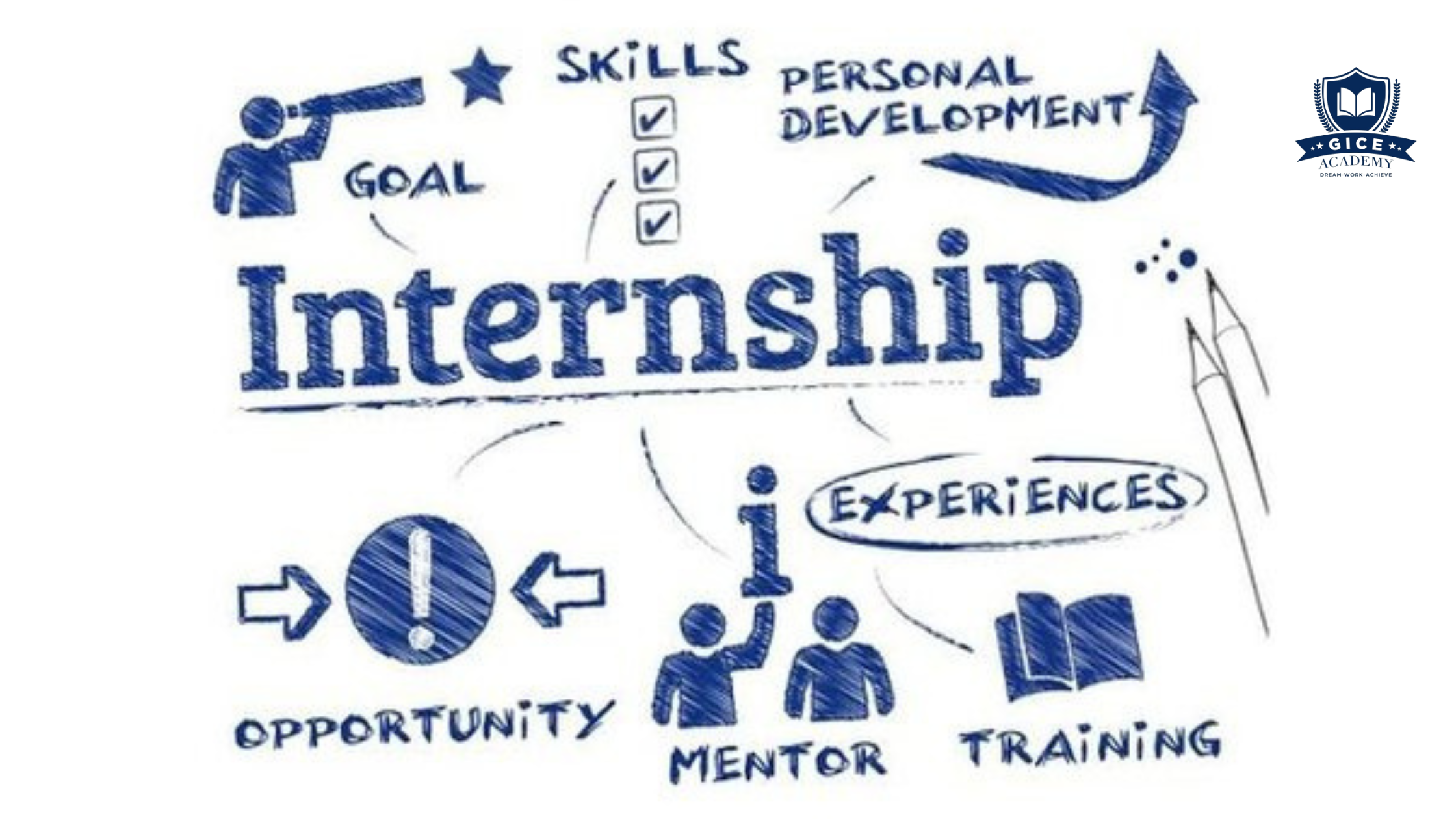
Internships play a vital role in gaining practical experience and increasing employability. Here are some ways to make the most of your internships
- Active Participation:
- Be proactive, ask questions, and take on challenging tasks during your internship to learn as much as possible.
- Networking:
- Build relationships with your colleagues and supervisors, as they can provide valuable references and job leads in the future.
- Skill Development:
- Focus on developing new skills and improving existing ones. Take feedback positively and work on areas that need improvement.
- Project Showcase:
- Document your projects and contributions during the internship to showcase in your resume and during job interviews.
- Full-Time Opportunities:
- If you perform well, there is a chance you might be offered a full-time position at the company after your internship.
1. What is an MCA course?
MCA stands for Master of Computer Applications. It is a postgraduate program focused on advanced computer science, software development, and IT management.
2. How long does it take to complete an MCA course?
The duration of the MCA course is typically three years, divided into six semesters.
3. What are the eligibility criteria for enrolling in an MCA course?
Generally, candidates need a Bachelor’s degree in Computer Science, Information Technology, or a related field. Some institutions may accept graduates from any discipline with Mathematics as a subject at 10+2 or graduation level.
4. What subjects are covered in an MCA course?
The curriculum usually includes subjects like programming languages, database management, computer networks, software engineering, web technologies, data structures, and algorithms.
5. What are the career prospects after completing an MCA?
MCA graduates can pursue careers as software developers, system analysts, database administrators, IT consultants, web developers, and network engineers, among other roles.

